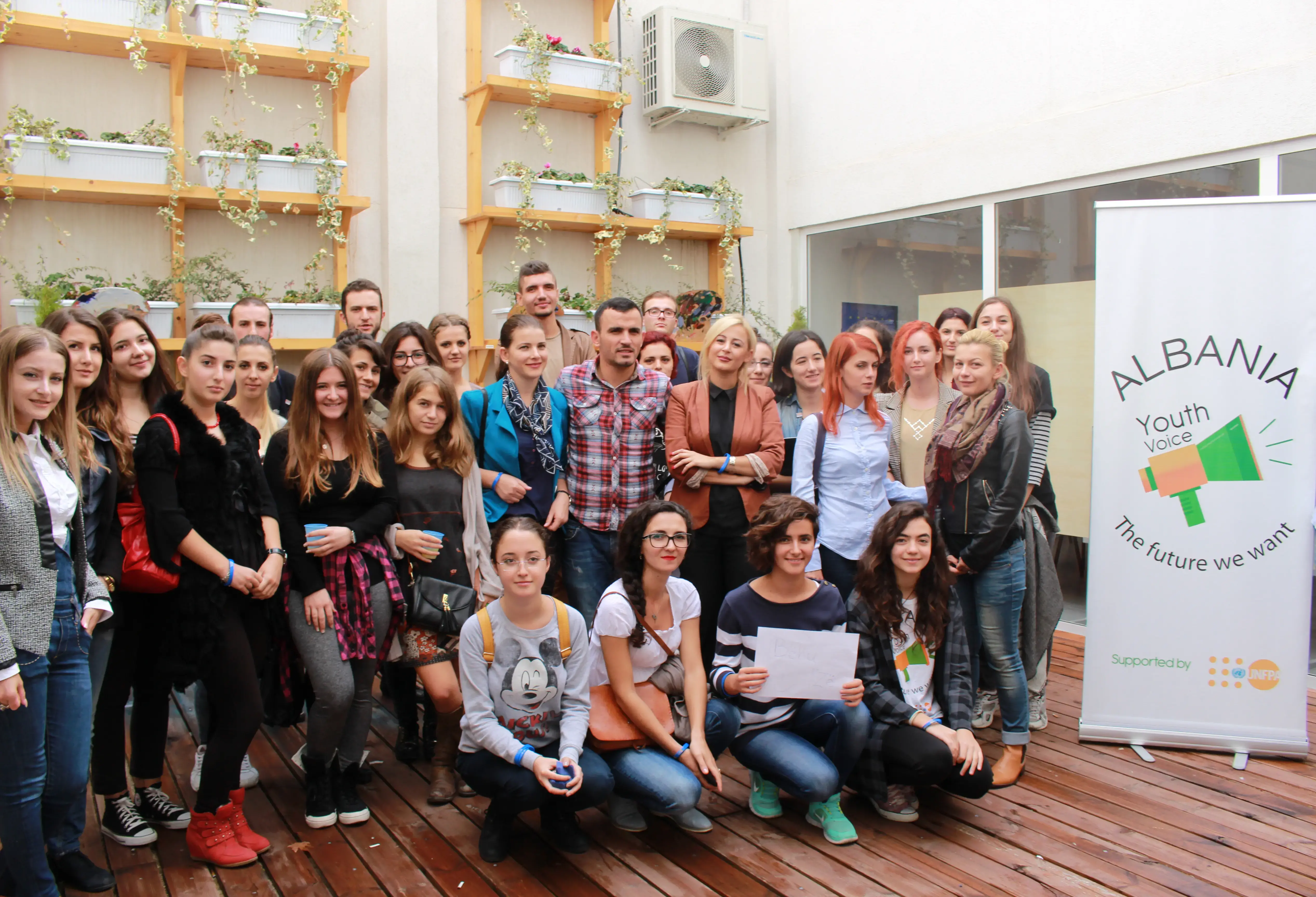Today's generation of young people is absolutely massive: Some 1.8 billion people are between ages 10 and 24. Most of them live in developing countries, often comprising a huge proportion of the population. How well they navigate adolescence will determine not only the course of their own lives, but that of the world.
Yet too many youth are unable to participate fully in society. Around 175 million young people in low-income countries cannot read a full sentence. Among those aged 15-24, some 500 million live on less than $2 a day, and over 73 million are unemployed. For girls, the barriers to participation are even higher.
But when empowered and given the right opportunities, youth are effective drivers of change. UNFPA partners with young people, helping them participate in decisions affecting them, and strengthening their ability to advance human rights and development issues such as health, education and employment.
People under 25 years old in Albania account for about 35% of the total number of resident population (INSTAT 2017). UNFPA in Albania advocates for youth rights, including the right to access and receive accurate information and quality services related to their sexual and reproductive health. Particular attention is paid to young people belonging to difficult and hard to reach or disadvantaged groups such as young people from remote and rural areas, young girls, young people without parental care, young people from LGBTI or sex workers, drug users, young people with disabilities, etc. UNFPA works to prevent sexually transmitted infections, including HIV; engages young people in decisions that affect their lives at the grassroots and local level; supports comprehensive sexuality education adapted to age; fights harmful practices such as early marriages, the pre-natal sex selection, gender-based violence; encourages youth leadership in all spheres of life.
Investing in young people is one of the smartest investments a country can do. As the next generation of parents, teachers, and leaders, they can help break the poverty cycle, strengthen the social structure, and create a sustainable future.


